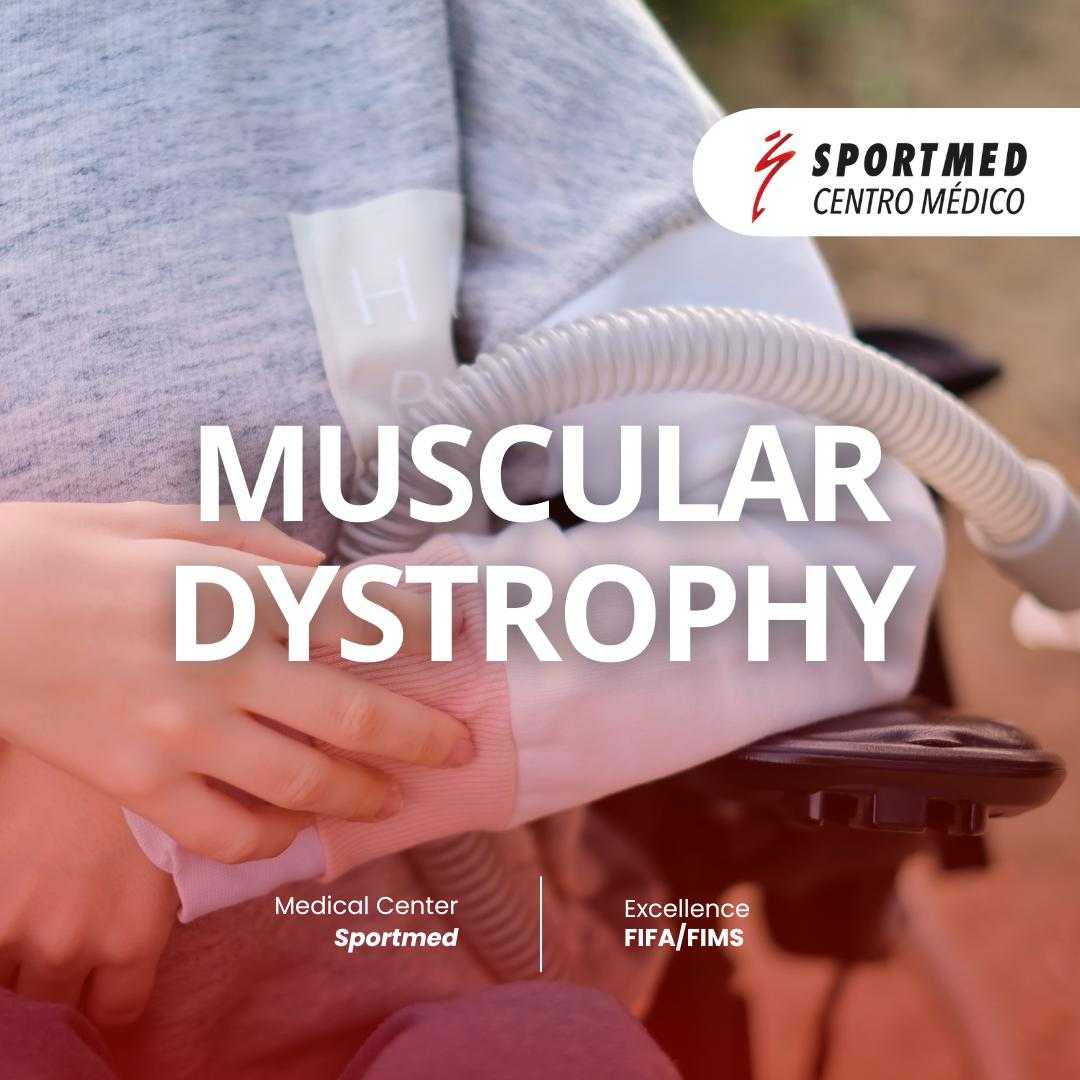
Regain Your Hearing & Health: Understanding Mastoidektomy Surgery
Living with persistent ear problems can be more than just an annoyance; it can impact your hearing, balance, and overall quality of life. For many, a mastoidektomy procedure offers a pathway to relief and renewed well-being. This specialized ear surgery addresses serious infections or growths within the mastoid bone, a crucial part of your inner ear system.
If you've been experiencing chronic ear discharge, worsening hearing, or even dizziness, you might be searching for "what is mastoidectomy surgery?" or "symptoms that require mastoidectomy." This guide aims to demystify mastoidektomy, exploring why it's performed, what to expect, and how medical tourism can provide access to world-class care at a more accessible cost. We'll delve into everything from the early warning signs of a condition requiring mastoidektomy to recovery expectations and the benefits of seeking treatment abroad.
Mastoidektomy is often a life-changing procedure for individuals suffering from conditions like cholesteatoma (a skin-lined cyst in the middle ear) or severe chronic otitis media (long-term middle ear infection) that has spread to the mastoid bone. Without intervention, these conditions can lead to serious complications, including permanent hearing loss, facial paralysis, or even brain abscesses. By understanding the procedure, its necessity, and the options available globally, you can make informed decisions about your health journey.
Whether you're exploring "mastoidectomy recovery time" or "mastoidectomy surgery cost abroad," we've got you covered. Our goal is to provide a clear, empathetic, and comprehensive overview to help you navigate your options with confidence, especially if you're considering the advantages of international medical care.
What are the warning signs indicating a need for Mastoidektomy?
Recognizing the symptoms that might necessitate a mastoidektomy is crucial for timely intervention. Many patients search for "chronic ear infection symptoms" or "signs of mastoid bone infection." These conditions, if left untreated, can lead to severe complications. Here are the most common warning signs:
- Persistent Ear Discharge (Otorrhea): This is one of the most common and tell-tale signs, especially if the discharge is foul-smelling and doesn't respond to antibiotics. It indicates an ongoing infection.
- Hearing Loss: Progressive or sudden hearing loss, often conductive, can occur as infection or cholesteatoma damages the delicate structures of the middle ear and mastoid bone.
- Ear Pain (Otalgia): Chronic or recurrent ear pain, particularly if it's deep-seated behind the ear, can signal inflammation or infection in the mastoid bone.
- Swelling and Tenderness Behind the Ear: Visible swelling, redness, and tenderness over the mastoid bone are classic signs of acute mastoiditis, a serious infection of the mastoid air cells.
- Fever and General Malaise: Systemic symptoms like fever, fatigue, and irritability often accompany acute infections.
- Dizziness or Vertigo: If the infection or growth affects the inner ear, it can lead to balance issues, dizziness, or a spinning sensation (vertigo).
- Tinnitus: Persistent ringing or buzzing in the ear can also be a symptom.
- Facial Weakness or Paralysis: In severe cases, the infection can spread to the facial nerve, causing weakness or paralysis on one side of the face. This is a medical emergency.
If you experience any of these symptoms, especially if they are persistent or recurrent, it's vital to consult an ENT specialist promptly. Early diagnosis can prevent the spread of infection and more severe complications.
What are the common causes and risk factors leading to Mastoid Bone Infection?
Understanding "why is mastoidectomy performed?" often comes down to identifying the underlying causes of mastoid bone damage or infection. Most mastoidektomies are performed due to complications arising from ear infections. Key causes and risk factors include:
- Chronic Otitis Media (COM): This is the most frequent culprit. When middle ear infections persist for months or recur frequently, bacteria can spread from the middle ear cavity into the mastoid air cells, leading to chronic mastoiditis.
- Cholesteatoma: This is a non-cancerous, but destructive, skin-lined cyst that develops in the middle ear or mastoid. It can erode bone, damage hearing structures, and is often caused by chronic negative pressure in the middle ear, pulling the eardrum inwards. Search terms like "cholesteatoma surgery" often lead to mastoidektomy discussions.
- Acute Mastoiditis: While less common now due to antibiotics, acute mastoiditis is a severe bacterial infection of the mastoid bone that can develop if acute middle ear infections are left untreated.
- Previous Ear Surgeries: In some cases, previous ear surgeries might leave residual disease or create anatomical changes that predispose to new infections.
- Compromised Immune System: Individuals with weakened immune systems may be more susceptible to severe and chronic ear infections.
The mastoid bone, located behind the ear, is filled with air cells that connect to the middle ear. When infection takes hold, it can lead to bone erosion and create a reservoir of infection that antibiotics alone cannot clear effectively, necessitating surgical intervention like a mastoidektomy.
What types of Mastoidektomy procedures are available?
Patients often search for "types of mastoidectomy" to understand the surgical options. The choice of mastoidektomy depends on the extent of the disease and the surgeon's goal:
- Cortical (Simple) Mastoidektomy: This is the least extensive type. The surgeon removes the infected mastoid air cells while preserving the middle ear structures (eardrum, ossicles). It's typically performed for acute mastoiditis without cholesteatoma.
- Modified Radical Mastoidektomy (MRM): This procedure removes the mastoid air cells, the posterior wall of the ear canal, and some middle ear structures to create a larger cavity, often to address cholesteatoma. The eardrum and some ossicles (hearing bones) may be preserved or reconstructed.
- Radical Mastoidektomy (RM): This is the most extensive procedure, typically reserved for severe, widespread disease that has caused significant damage to the mastoid and middle ear. It involves removing the mastoid air cells, the posterior and superior walls of the ear canal, and most of the middle ear structures, creating a large common cavity (mastoid cavity) that is open to the external ear canal. Hearing loss is a common outcome, but it's often necessary to clear life-threatening infection.
- Atticotomy/Tympanomastoidectomy: These are variations that might focus on specific areas or combine mastoid surgery with repair of the eardrum (tympanoplasty).
Your surgeon will determine the most appropriate type of mastoidektomy based on your specific condition, the extent of the infection or cholesteatoma, and the goal of the surgery (e.g., disease eradication, hearing preservation, or both).
Who is an ideal candidate for Mastoidektomy surgery?
Patients often wonder, "Is mastoidektomy right for me?" The decision to undergo a mastoidektomy is made after a thorough evaluation by an ENT specialist. You might be considered an ideal candidate if you:
- Have Cholesteatoma: This is a primary indication, as cholesteatomas are progressive and destructive, requiring surgical removal to prevent serious complications.
- Suffer from Chronic Otitis Media (COM) with Mastoid Involvement: If a chronic middle ear infection has spread to the mastoid bone and is causing persistent discharge, hearing loss, or pain, and is not responding to medical treatment.
- Are Diagnosed with Acute Mastoiditis: Especially if the infection is not resolving with antibiotics or if complications (like abscess formation) are present.
- Experience Recurrent Ear Infections Leading to Complications: Such as dizziness, facial nerve weakness, or severe hearing loss, where the mastoid is a source of infection.
- Are in Good General Health: While mastoidektomy can be performed on children and adults, a patient's overall health status is assessed to ensure they can safely undergo anesthesia and recover from surgery.
A comprehensive consultation, including hearing tests, imaging studies (like CT scans), and a review of your medical history, will determine your suitability for the procedure.
What is the typical recovery time and what can I expect after Mastoidektomy?
Understanding "mastoidectomy recovery time" and "what to expect after mastoidectomy" is crucial for planning. Recovery varies depending on the type of mastoidektomy and individual healing, but here’s a general timeline:
- Immediately After Surgery: You'll likely have a dressing over your ear and possibly packing inside the ear canal. Mild pain, nausea, and some dizziness are common. You'll receive pain medication.
- First Few Days: Rest is paramount. Avoid strenuous activities, heavy lifting, and bending over. Keep the surgical site dry. Some bloody discharge is normal.
- First 1-2 Weeks: The outer dressing is usually removed within a week. Stitches may be removed, or dissolve. Ear packing might remain for several weeks. You might experience temporary changes in taste, a feeling of fullness in the ear, or clicking noises. Light activities can be resumed, but swimming and flying are usually restricted.
- Weeks 2-6: Most discomfort should subside. Dizziness, if present, typically resolves. You'll have follow-up appointments to monitor healing and remove any remaining packing. Hearing improvement, if expected, will be gradual.
- Full Recovery: Complete healing of the ear and internal structures can take several months. "Life after mastoidectomy" generally returns to normal, though some activities like scuba diving may require lifelong precautions, especially if a mastoid cavity was created.
It’s important to follow all post-operative instructions carefully, including medication schedules, wound care, and activity restrictions, to ensure optimal healing and outcomes.
What are the potential risks and side effects of Mastoidektomy?
Like any surgical procedure, mastoidektomy has potential risks and side effects. It’s important to discuss these thoroughly with your surgeon, especially when considering "mastoidectomy risks and complications."
- Hearing Loss: While the goal is often to preserve or improve hearing, further hearing loss (temporary or permanent) can occur, especially in more extensive procedures.
- Facial Nerve Injury: The facial nerve runs through the mastoid bone. While surgeons take extreme precautions, there's a small risk of temporary or, rarely, permanent facial weakness or paralysis.
- Dizziness/Vertigo: Temporary dizziness is common after surgery. Persistent vertigo, though rare, can occur if the inner ear is affected.
- Tinnitus: New or worsening ringing in the ear can develop.
- Infection: Though the surgery aims to clear infection, post-operative infection is a possibility, requiring antibiotics.
- Bleeding: As with any surgery, there's a risk of bleeding.
- Taste Disturbance: The chorda tympani nerve, which controls taste to part of the tongue, runs through the middle ear and can be affected, leading to temporary or permanent changes in taste.
- Cerebrospinal Fluid (CSF) Leak: In very rare cases, the bone covering the brain might be breached, leading to a CSF leak, which requires further intervention.
Your surgeon will explain how they minimize these risks and what measures are in place to manage them if they occur. Choosing an experienced surgeon significantly reduces the likelihood of complications.
How does the worldwide cost of Mastoidektomy surgery compare?
The cost of mastoidektomy can be a significant factor for many patients, especially those without adequate insurance coverage. "Cost of mastoidectomy" searches often reveal a vast difference between Western countries and popular medical tourism destinations. This disparity is a primary driver for people seeking treatment abroad.
| Country | Estimated Cost Range (USD) | Notes on Value |
|---|---|---|
| United States | $15,000 - $35,000+ | High quality, but often prohibitive without comprehensive insurance. |
| United Kingdom | $12,000 - $25,000+ | Similar to US in private sector; long wait times in public healthcare. |
| Canada | $10,000 - $20,000+ | High quality, but can involve significant wait times even for insured patients. |
| India | $3,000 - $6,000 | Significantly lower costs, excellent English-speaking doctors, world-class facilities. |
| Turkey | $4,000 - $7,000 | Competitive pricing, modern hospitals, experienced surgeons, often includes accommodation. |
| Mexico | $3,500 - $6,500 | Convenient for North American patients, good quality care at lower prices. |
| Thailand | $4,500 - $8,000 | High-standard hospitals, combining medical treatment with a recuperative holiday. |
These costs typically include the surgeon's fee, anesthesia, hospital stay, and basic post-operative care, but always confirm what is included in any quoted package.
Why should I consider traveling abroad for Mastoidektomy?
Many patients globally are now choosing to pursue "mastoidectomy abroad" for a multitude of compelling reasons:
- Significant Cost Savings: As seen in the table above, the cost for mastoidektomy in developing medical tourism hubs can be 50-80% lower than in Western countries, even when factoring in travel and accommodation.
- Access to Specialized Expertise: Some of the world's most experienced ENT surgeons, specializing in complex ear surgeries, practice in medical tourism destinations. Patients gain access to these top-tier professionals without prohibitive costs or long waits.
- Reduced Wait Times: In many public healthcare systems, elective surgeries can involve long waiting lists. Traveling abroad allows patients to schedule their procedure much sooner, preventing further disease progression.
- Advanced Technology and Facilities: Many international hospitals catering to medical tourists boast state-of-the-art equipment, modern infrastructure, and world-class patient care facilities comparable to, or even exceeding, those in their home countries.
- Privacy and Anonymity: For some, undergoing a medical procedure away from home offers a sense of privacy.
- Combine Treatment with Tourism: The ability to recuperate in a new cultural environment or combine the trip with a relaxing vacation adds an extra dimension to the treatment experience.
For complex procedures like mastoidektomy, where expertise and careful follow-up are key, the blend of affordability and quality makes medical tourism a very attractive option.
Which countries offer the best value for Mastoidektomy?
When searching for "best countries for mastoidectomy," certain destinations consistently rise to the top due to their proven track record in medical tourism:
- India: A powerhouse in medical tourism, India offers highly skilled ENT surgeons, JCI-accredited hospitals, and advanced technology at a fraction of Western costs. English is widely spoken in medical facilities.
- Turkey: Istanbul and Ankara are home to numerous state-of-the-art hospitals. Turkey combines competitive pricing with excellent medical expertise, often including comprehensive packages that cover accommodation and transfers.
- Mexico: Especially convenient for patients from North America, Mexico provides accessible, high-quality care, particularly in border cities and major medical hubs like Guadalajara and Mexico City.
- Thailand: Known for its exceptional hospitality and modern private hospitals, Thailand offers excellent medical services in a welcoming, recovery-friendly environment.
- South Korea: While potentially slightly higher in cost than India or Turkey, South Korea is globally recognized for its technological advancements in medicine and highly specialized surgical teams, particularly in complex procedures.
These countries prioritize patient care and often have departments specifically dedicated to international patients, assisting with everything from travel logistics to language support.
What to expect when traveling for this procedure?
Undertaking a medical journey abroad for mastoidektomy involves more than just the surgery itself. Here's a general overview of what to expect:
- Initial Consultation and Planning: This often starts with remote consultations (video calls, sharing medical records) with potential surgeons and clinics. You'll receive a detailed treatment plan and cost estimate.
- Travel Arrangements: Once you've chosen a destination and clinic, you'll arrange flights, accommodation, and potentially a medical visa. Many clinics or medical tourism facilitators like PlacidWay assist with these logistics.
- Arrival and Pre-Operative Assessments: Upon arrival, you'll undergo in-person consultations, a physical examination, and necessary diagnostic tests (blood tests, imaging) to confirm your readiness for surgery.
- The Procedure and Hospital Stay: Mastoidektomy is typically performed under general anesthesia. The hospital stay varies, usually 1-3 days depending on the procedure's complexity and your recovery.
- Post-Operative Recovery in Destination: You'll need to stay in the country for a period after discharge for initial recovery and follow-up appointments. This could be 1-2 weeks, to ensure stable healing before flying home. This is a time to rest and follow your surgeon's instructions.
- Return Home and Continued Care: Your surgeon will provide detailed instructions for at-home care and a timeline for resuming normal activities. You'll likely communicate with your surgeon remotely for ongoing follow-up, and your local ENT can take over routine checks.
Effective communication and meticulous planning are key to a smooth medical journey abroad.
How can I ensure safety and quality abroad for Mastoidektomy?
Ensuring safety and quality is paramount when considering "how to ensure safety and quality abroad for mastoidectomy." Here are critical steps to take:
- Choose Internationally Accredited Facilities: Look for hospitals with international accreditations like Joint Commission International (JCI). This signifies adherence to global standards for patient safety and quality of care.
- Verify Surgeon Credentials: Research your surgeon's qualifications, experience, specialization in otology (ear surgery), board certifications, and the number of mastoidektomies they perform annually.
- Read Patient Reviews and Testimonials: Seek out genuine reviews and testimonials from other international patients who have undergone similar procedures at the chosen clinic or with the specific surgeon.
- Ask for All-Inclusive Quotes: Ensure the cost estimate is comprehensive, covering all aspects from pre-op tests to post-op care, accommodation, and transfers. Avoid hidden fees.
- Utilize a Reputable Medical Tourism Facilitator: Companies like PlacidWay specialize in connecting patients with vetted international clinics and surgeons, assisting with logistics, and providing an added layer of security and support.
- Clarify Communication Channels: Ensure there will be clear communication with your medical team, ideally in your native language or with reliable translation services.
- Understand Follow-up Care: Discuss the plan for post-operative follow-up once you return home and how your local medical team can coordinate with your international surgeon.
- Purchase Medical Travel Insurance: This can cover unforeseen medical complications or travel disruptions.
By diligently researching and planning, you can significantly mitigate risks and enhance the safety and success of your mastoidektomy abroad.
What are patient success stories from abroad after Mastoidektomy?
Hearing about "patient success stories from abroad after mastoidectomy" can provide immense reassurance and insight for those considering medical travel. While individual outcomes vary, many patients experience transformative results:
- Sarah from the UK: Struggled with recurrent cholesteatoma and long NHS waiting lists. She traveled to Turkey for a modified radical mastoidektomy. "The care was exceptional, the surgeon was incredibly skilled, and I recovered beautifully. My chronic ear discharge has stopped, and my hearing is significantly better. I saved thousands and got my life back faster."
- David from Canada: Faced with progressive hearing loss and chronic infection, David chose India for his simple mastoidektomy. "The professionalism of the Indian hospital was outstanding. Not only was the surgery affordable, but the personalized attention from my doctor was something I hadn't experienced before. I can hear clearly now, and the constant earache is gone."
- Maria from the USA: Sought a second opinion for a complex mastoiditis case and found a specialist in Mexico. "I was nervous at first, but the clinic was so modern, and the staff made me feel at ease. The surgery was a complete success; the infection is gone, and I avoided the massive bills I would have faced back home. I even enjoyed exploring the city during my recovery."
These stories underscore the potential for high-quality, effective treatment abroad. Patients often praise not only the surgical outcomes but also the comprehensive care, shorter wait times, and significant cost savings that made their treatment accessible.
Take the Next Step with PlacidWay
Ready to explore treatment options abroad? Discover top clinics, compare prices, and get a free quote tailored to your needs with PlacidWay.










Share this listing